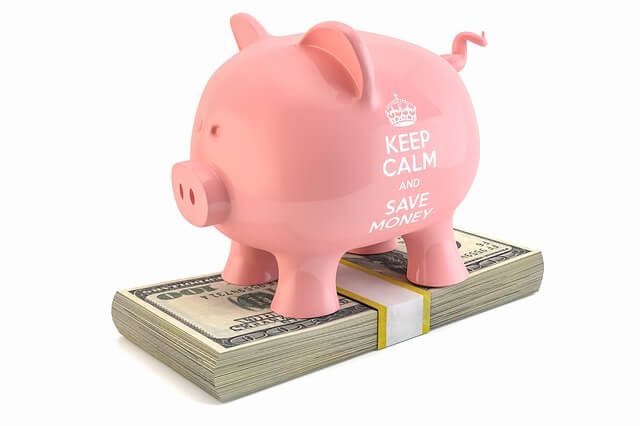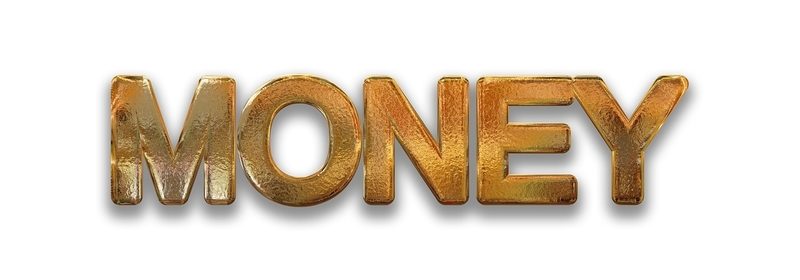I was lucky enough to instinctively have good savings habits all throughout my late teens and 20’s (I am now 28 years old at the time of writing this post).
By nature, I was always more of a saver than a spender for as long as I could remember.
However, I realize that not many people are like this and especially in their 20’s.
In fact, the exact opposite is generally more common…prioritizing spending over saving.
It looks something like this:
Work for a paycheck ==> Spend that money before there’s anything left to save ==> Work for another paycheck ==> Spend that money again before there’s anything left to save
It’s never ending…and notice the keywords I underlined….work, spend, work, spend...which leaves no room for saving.
This is a cycle that will only lead to dissatisfaction, less flexibility and more financial stress.
If you’re reading this and wondering how you can start saving money in your 20’s, this post will help to get you started.
I give you a lot of credit for having the motivation to research this topic and look for more information, as this mindset puts you way ahead of the average person in their 20s (you know the one who blows money on food, alcohol, going out, living it up, partying etc.).
You are different, and that’s a good thing…this alone tells me that you will be stacking away some serious cash going forward.
And don’t worry, you do not have to give up your life to be a dedicated saver.
It will only create more freedom and options down the road to do what you truly want to in life.
Trust me on this!
How To Start Saving Money In Your 20s
Saving money in your 20’s can be rough, with school loans, low income, part-time work, relationships, distractions, temptations and a whole lot more.
I never said this was going to be easy, but the habits you create now can truly change your life down the road.
Let’s look at a few tips to help get you started:
1.) Adopt a strong work ethic: It’s important at an early age to understand the value of money and to adopt a strong and consistent work ethic. Regardless of the job(s) you are working in your 20’s, realize that they are helping you further your savings goals. Look at every hour, every week and every paycheck as getting closer to your goal and closer to financial independence. Let’s face it, you need an income in order to save money and without a strong work ethic, you will lose focus quickly. A few good jobs that can be pretty lucrative in your 20’s are serving tables, bartending and really anything where you can make tips. I waited tables for 5 years (along with working another part-time job) and it allowed me to pay off my student loans, stash some cash away and indulge in activities I was interested in. Regardless what types of jobs you work in your 20’s, take this time to develop a strong work ethic. Hard work pays off, remember that.
2.) Save a Portion of Your Income (no matter what): Whenever you bring in any sort of income (even if it’s a birthday card filled with money from a family member), I want you to immediately save a portion of it and put it into a savings account where you won’t be tempted to spend it. You see, when we’re in our 20’s, money is spent almost as soon as we receive it. Although it may feel good at first, this habit will constantly keep you under water. The idea here is to give yourself more space and freedom in life, and this can be accomplished through financial education and persistent action. The portion of money that you save each pay period, try to pretend like it’s not even there. And more importantly realize that every chunk you save/invest is slowly creating more momentum for you. Another key point to implement is to automate this process through your bank or investment company, this way money is guaranteed to be saved, no matter what. Automation alone will result in saving consistently and watching your balance grow over-time. Take it from me, set up automatic deposits and you will thank me later.
3.) Read Books on Personal Finance: My life really changed when I started reading various books on personal finance. In fact, I became addicted and quickly turned into a personal finance “geek”. The type of information provided in these books opened my eyes to what is possible through saving and investing your hard earned cash instead of throwing it away and making other people rich. A few personal finance books that I highly recommend for people in their 20’s that are juggling student debt, low incomes and just overall confusion are:
- “The Millionaire Next Door” – Thomas Stanley
- “This Richest Man In Babylon” – George S. Clason
- “The Total Money Makeover” – Dave Ramsey
- “Your Money Or Your Life” – Vicki Robin
- “The Automatic Millionaire” – David Bach
- “The Simple Path To Wealth” – JL Collins
These books will provide you the road map you need to win with money. Learn from people who are successful in this area and adopt their habits. The best part about this whole process is that anyone can experience financial independence, no matter what their income level is and how much debt they have. Stick to your plan and never look back.
4.) Live Simply & Keep Expenses Low: There’s something really liberating about only buying things that you need, getting rid of unnecessary clutter and living an overall simple life. Transitioning to a minimalist lifestyle will be one of the single best decisions you ever make in your life (for your mental health and wallet). This will also result in keeping your expenses lower which in return will allow you to save more money. Realize that things or objects do not make you happy, but progress does. Living below your means and really being strategic with your spending will result in a much higher savings rate. This is almost like giving yourself a raise as it will free up extra income to use for saving. This may be hard at first to adopt a simpler type of lifestyle, but overtime it will become more natural and especially when you see your savings grow.
A Few Tips To Help Speed Up The Saving Process In Your 20’s
1.) Start a Side Hustle: Having an extra source of income outside of your job can really shake things up in a good way. I believe starting a side-hustle in your 20’s is one of the best times to do so, since that’s when you have the most energy and hunger. The power of the Internet has opened up so many doors and opportunists for people to create additional cash flow in their lives. I know the few side projects I’ve started, have helped increased my savings rate dramatically. If you’re confused at where to begin, I recommend considering starting a blog to get your feet wet. At the very least, you will learn a lot along the way. Having a side-hustle is both rewarding and fulfilling and adds another layer of financial security in your life.
2.) Become More Efficient/Create More Value: You should constantly be working on becoming more efficient in your life by expanding your skills, knowledge and creating more value for the world. This can be done through self-education, reading influential books, going to seminars, adopting productive habits etc. The more efficient you become, the more value you can offer which leads to making & then saving more money. Always take the time to invest in yourself, each and every day. You are your greatest asset.
3.) Keep Track of Your Net Worth: This has a psychologically boosting effect like no other. Seeing your progress whether it’s paying off debt or tracking your net worth can be both addicting and seductive and will encourage you to keep pushing forward. I recommend tracking your numbers in an excel spreadsheet, with charts/graphs to help you visually see your hard work paying off. This alone has made a huge difference in my finances as well as my mindset and motivation. If you need an excel template to work off of, just let me know.
There you have it, some practical tips/steps that you can get started with today to save more money in your 20’s.
The most critical part here is to actually started.
The financial decisions you make now can have an extremely positive impact on your life going forward, so please don’t take this information lightly.
I want you to become a warrior with your finances from here on out like your life depends on it (because quite frankly, it does).
Please keep me posted on your progress, as I’d love to hear how you are making out and if you have any questions.
If you enjoyed this type of post, please let me know if you’d like me to write future posts based around personal finance.
And if you have any additional tips that have helped you save more money, please leave them in the comments section below!





 Bank of America
Bank of America this is where I’m currently putting money away for a down payment on a house. This account in the future will be used for longer term financial goals that I don’t want tied up in an investment/retirement account. Capital One 360 is great because it also allows you to set up savings goals where you can monitor your progress.
this is where I’m currently putting money away for a down payment on a house. This account in the future will be used for longer term financial goals that I don’t want tied up in an investment/retirement account. Capital One 360 is great because it also allows you to set up savings goals where you can monitor your progress. which are both invested in the stock market (VTSAX to be exact- Vanguard’s Total Stock Market Index Fund). I like to call these my “freedom funds” that I contribute to heavily to take advantage of compound interest, increasing my overall net worth and setting myself up for financial independence. Vanguard’s mobile app allows me to set up automatic or one-time contributions, track my investments in great detail, and provides in-depth metrics/analytics on how my investments are performing. I personally couldn’t live without this application.
which are both invested in the stock market (VTSAX to be exact- Vanguard’s Total Stock Market Index Fund). I like to call these my “freedom funds” that I contribute to heavily to take advantage of compound interest, increasing my overall net worth and setting myself up for financial independence. Vanguard’s mobile app allows me to set up automatic or one-time contributions, track my investments in great detail, and provides in-depth metrics/analytics on how my investments are performing. I personally couldn’t live without this application. make transactions necessary to my business, transfer profits into my Bank of America account and send money to friends/family. When you run a business you need to be linked up to your accounts in order to save yourself as much time and money as possible. I use my PayPal app daily and couldn’t imagine doing business without it. When I’m “on the go” and away from my computer, this application comes in very handy to complete business transactions.
make transactions necessary to my business, transfer profits into my Bank of America account and send money to friends/family. When you run a business you need to be linked up to your accounts in order to save yourself as much time and money as possible. I use my PayPal app daily and couldn’t imagine doing business without it. When I’m “on the go” and away from my computer, this application comes in very handy to complete business transactions.






 That can be an extremely stressful way to live and it’s astonishing that so many Americans are in this situation currently.
That can be an extremely stressful way to live and it’s astonishing that so many Americans are in this situation currently.




